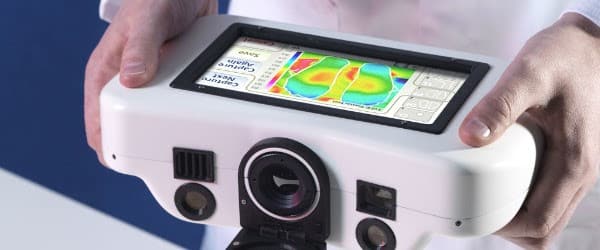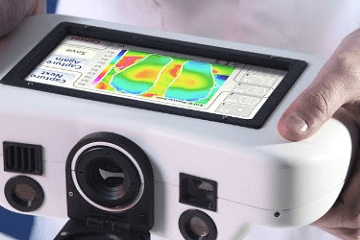People living with diabetes in Somerset are being asked to help develop an innovative device which could improve the lives of thousands of people living with the same condition across the country.
The National Physical Laboratory (NPL) is developing a heat mapping device which detects diabetic foot ulcers before they develop, and the world-leading measurement institute now wants the views of those living with the condition to better understand how diabetes patients interact with technology.
Foot ulcers are one of the most common complications of diabetes, with 10 per cent of people with diabetes estimated to develop a foot ulcer at some point in their lives. In England alone, this results in 135 amputations in each week.
To prevent this, clinicians use basic thermometers and rely on visual inspections, but large numbers of ulcers still occur. NPL’s innovative new device uses thermal imaging technology, similar to that used during search and rescue missions, and would allow people with diabetes to easily and regularly check their feet to spot for early warning signs of a foot ulcer before it is visible.
NPL’s device has been in clinical trials for the past two years at the UK’s leading diabetic podiatry centres of Kings College Hospital, Freemans Hospital Newcastle and the Pennine acute hospitals.
The accuracy of the device has been tested in a real-world clinical setting, but now patient feedback is needed to develop the technology further.
People being encouraged to give feedback include:
- Those living with diabetes type 1 or 2
- Relatives or unpaid carers of those with diabetes
- Those who are at most risk of developing foot ulcers, including:
– People who have had diabetes over 10 years
– Previous history of foot ulcer or amputation
– Males with diabetes over 65 years old - Diabetic healthcare professionals
- Support and community groups for those with diabetes
Dr Rob Simpson, Principle Research Scientist in Thermal Imaging at the National Physical Laboratory, said: “The at-risk foot can deteriorate from a barely detectable change in the foot to a state requiring amputation within a very short period. Good foot management, preventative actions and early detection are vital to reducing the risks and increasing survival rates.
“Our technology allows us to detect clinically significant changes in temperature, we hope this new device will give people with diabetes, and carers, the control and power to better manage their risk of getting ulcers.”
Wiltshire-based research and insight consultancy, Evolving Communities, has been commissioned to consult with the county’s diabetic population to find out their views on this new device.
Dr Sara Nelson, from Evolving Communities, explained: “Any new technology must be acceptable to the potential users and they very often can see problems or come up with ideas that the product development team may not have thought of.
“We hope we can find out what people think about the look and feel of the device, is it too small, too big? How often would they use it? Are they even aware of the diabetic foot ulcers and the associated risks?
“All the information collected will be used by The NPL to develop the final product. We’re hoping as many people as possible will take part and help share their views to make this new device the best it can be.”

A series of focus groups are being planned as well as an on-line survey, which takes just two minutes to complete. The aim is to get as many of the county’s 29,000 diabetes patients and their carers or families to take part to help develop the new device. Patients, carers and their families can take part in the survey online: https://www.smartsurvey.co.uk/s/DiabetesEC/



 Please Wait...
Please Wait...